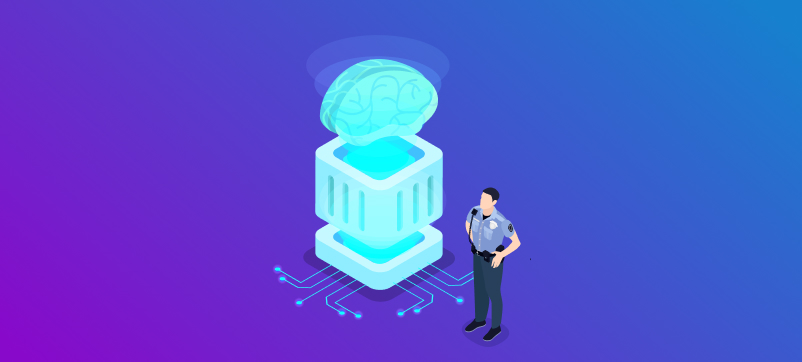Artificial intelligence (AI) is no longer the stuff of science fiction movies. It has established itself as the driving force behind digital transformation and is in the middle of the revolution in business management, bringing radical changes to traditional methods. In this article, we’ll explore the principles of AI in an accessible way, as well as its integration into traditional management tools.
Fundamentals of AI
Artificial intelligence (AI), often perceived as a mysterious field, is now finding its place at the heart of business management. At the heart of this revolution are solid foundations based on the ability of machines to imitate human intelligence. AI embraces various types, but all share the common goal of performing intelligent tasks without explicit programming. Among these types, machine learning stands out by enabling machines to learn from data, thus adjusting their behavior without human intervention. Neural networks, inspired by the way the brain works, are another cornerstone of AI, enabling complex patterns to be understood and problems to be solved. In short, these foundations offer a range of tools for business management, from task automation to informed decision-making, redefining the way organizations operate on a day-to-day basis.
Integration with traditional tools
Automation of day-to-day management
The integration of AI into traditional business management tools marks a significant turning point, mainly thanks to the automation capability it offers. Tasks that are repetitive, time-consuming and sometimes prone to human error can now be handled automatically, freeing up valuable resources. In our field of interest, this translates into the ability to rapidly manage massive volumes of data, perform complex analyses and generate detailed reports without constant human intervention.
The integration of AI into traditional day-to-day management tools represents a revolution in the way businesses operate on a day-to-day basis. Take the example of day-to-day business management, often laborious and prone to human error.
With AI-driven automation, repetitive tasks such as workflow management, data entry and report generation can be performed autonomously and efficiently. Imagine an automated system that analyzes incoming invoices, extracts the relevant information, and integrates it directly into accounting systems without any manual intervention. This not only eliminates potential errors, but also frees staff from tedious administrative tasks, enabling them to concentrate on more strategic aspects of their work.
In addition, automation can play a key role in inventory management. By using AI systems, companies can accurately predict stock requirements. They can optimize replenishment levels and minimize surpluses, contributing to more efficient resource management.
In short, automation in day-to-day business management thanks to AI leads towards a simplification of previously complex processes, reduces the risk of human error, and frees up valuable resources. Teams can focus on more creative and strategic aspects, while ensuring faster and more accurate execution of operational activities.
Decision Support
Where AI really shines is in decision-making. By analyzing an almost limitless amount of data, it can identify patterns, and provide relevant information that serves as the basis for informed decisions. It offers a proactive perspective on market trends, customer preferences, and other crucial variables.
However, it is crucial to note that AI does not replace human decision-making, but complements and accompanies it. Managers remain at the center of the process, using AI recommendations as an informed guide to make informed decisions.
By harnessing the power of predictive analytics, AI enables companies to anticipate, innovate and rapidly adapt to a constantly changing environment. AI thus becomes a strategic advisor, contributing to companies’ long-term growth and success.

New challenges
Training
With the increasing integration of AI into business management tools, it becomes imperative for staff to be familiar with these technologies. Employees will need to be supported in acquiring the skills they need to work effectively with AI-based tools, whether in interpreting results, managing automated systems, or understanding the ethical implications of using these technologies.
Ongoing training thus becomes an essential lever for maximizing the benefits of AI integration while ensuring smooth adoption within the enterprise.
The transition to AI-powered management also requires a new approach to staff training. Traditional skills need to be complemented by a basic understanding of AI. However, don’t worry, training programs are already in place in many companies to help employees adapt to this new era.
Ethics
Although automation and decision support represent major advances, it is important to note the associated challenges. Ethical issues, such as algorithm transparency and liability in the event of error, need to be addressed. In addition, over-reliance on AI can create risks in terms of data security and confidentiality.
However, by overcoming these challenges, companies can fully exploit the benefits of integrating AI with traditional tools. Automation frees up time and resources, while decision support offers deeper insight for more informed choices.
Integrating AI into traditional tools transforms business management by automating processes and providing intelligent decision-making support.

AI a future colleague?
Chatbots, representing a significant facet of artificial intelligence, have rapidly established themselves as essential tools in the professional world. These virtual assistants, programmed to simulate human conversations, have evolved far beyond simple pre-programmed responses. Now it offering more intelligent and personalized interactions.
We can go even further, for example, by coupling these chatbots with another artificial intelligence technology, generative AI. We could, for example, personalize a user interface based on users’ past behavior or interactions with chatbots.
Although these AIs are powerful tools, and present enormous opportunities, they do not totally replace human interaction. In complex situations, human intervention often remains indispensable to ensure in-depth understanding.
Chatbots have become versatile virtual collaborators, bringing intelligent automation to businesses and significantly improving operational efficiency, whether in customer service, internal management or human resources. The continuing evolution of this technology promises to bring even more innovations and possibilities to the professional world.
Come and join us!
Are you passionate about AI and want to join a company at the cutting edge of innovation?

